For some time now I have felt the urge to blog – to put out to the World some of my thoughts and insights. For a lot of reasons, both benign and less positive, I have managed to avoid executing this desire to blog.
Well my procrastination and dithering has come to an end – over the coming months I will post regular selections of what I am thinking about and how my thinking has evolved.
This first posting is intended to introduce myself, give you a bit of my background which I hope will help you navigate my thoughts and to sketch a high-level outline of what you can expect in the coming months.
So who am I – that is a question that could take some time to address but a few quick comments should suffice here. I am a proud Canadian who has spent much of my life living on Vancouver Island though I have lived and worked in other locations. I am now a grandfather – 10 years ago I wouldn’t have imagined I would enjoy this role but I do and it does have an effect on how you understand the World and your role/contribution in it.
For much of my life I have been a keen participant in community life – volunteering in various capacities, attending public events, following the political discourse and on occasion becoming directly involved in the political process (no I have never run for public office but there are other ways of being directly involved). These are habits I acquired from my family.
For over 20 years I worked in the British Columbia Public Service across a variety of policy areas and central agencies. I hadn’t intended to be a public servant, joining as a contract staff person and discovering I enjoyed the work, but I enjoyed a very diverse, challenging and rewarding career.
Shortly before leaving the public service I began a PhD in Leadership and Change through Antioch University. While I started the PhD thinking that it would help me integrate my “life-experience” and set my on a positive track for my life as a consultant I discovered it was a life-changing experience in many ways – all positive
Since leaving the public service, not quite 10 years ago, I finished my PhD and have developed a comfortable consulting and coaching practice. I have also enjoyed being an adjunct faculty member with a couple of post-secondary institutions
Over my professional career and my academic studies a number of questions have consistently captured my imagination:
- Why is it that we have so many great books, articles etc. related to management and leadership yet we still have so many problems/issues/failures?
- Why is it that some folks seem to understand and adapt to situations naturally while others don’t?
- Why is it that some folks quickly see different patterns that could emerge from data/context/situation while others continually see only the one pattern?
- Why is it that so many speak of the significance of transformational learning yet there seems to be so little taking place?
- Why is it that we have been developing change management tools and techniques for several decades (centuries?) yet we still note that upwards of 75% fail?
These are some of the questions, along with others, that provided the motivation to pursue an interdisciplinary PhD in Leadership and Change. I want to acknowledge a few of the people to whom I was exposed during my PhD studies and who have been a major influence on my own thinking – these include Dr. Robert Kegan, Dr. William Torbert, Dr. Henry Mintzberg, Dr. Ronald Hiefetz, Dr. John Kotter and in particular my dissertation committee members, Dr. Elizabeth Holloway, Dr. Donald Polkinghorne, Dr. Peter Vaill and Dr. Michael Caroll. These people, and others, also introduced me to writers like Vygostky, Lewin, Maslow, Charles and Edie Seashore, Piaget and so many others.
I am also indebted to the work of Ken Wilber who’s Integral Theory, particularly as expressed in his AQAL Theory, has provided an elegant yet accessible way of drawing together the many desperate ideas, insights, and theories that have shaped my approach to learning, working with organizations, and coaching. There is not sufficient space in this entry to do justice to the breadth of Wilber’s thinking ( I will return to his work in future blog entries) but a few quick points will hopefully give you a sense of its breadth:
- Integral Theory is a meta- theory that creates the ability to construct a trans-disciplinary approach to understanding complex issues;
- No single theory contains all truth about a particular issue but all theories provide some truth – we can’t become a captive of any one theory nor should be hastily reject a theory;
- Wilber works with the theory of holons to demonstrate that everything is connected to everything – whatever we do will have an effect on many other issues ; and,
- Wilber identifies four fundamental quadrants into which all other theories can be categorized – 1. Individual/Subjective/Interior (my values, intellect, etc.), 2. Individual/Objective/Exterior (my behaviours, skills, applied knowledge), 3. Collective/Objective/Exterior,(our processes, systems, structures, etc.). and 4. Collective/Subjective/Interior (our language, shared values, etc.)– but acknowledges that based on point 3 we can’t work in one quadrant without effecting the other three.
Over the coming blog entries I am going to explore how my thinking has evolved and taken shape over the years. My next two posts will provide a very brief overview of how our understanding of adult development, management, leadership, and organizations has changed and grown deeper. Subsequent blog entries will s explore the idea of taking control of our own development and a number of techniques for doing so, e.g. reflective practice, journaling, and mindfulness. In each case I will note the quadrant to which the post/blog speaks most directly.
I invite you to travel with me through this experience and to share your thoughts with me directly
